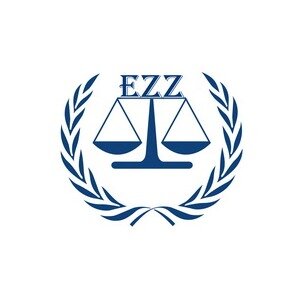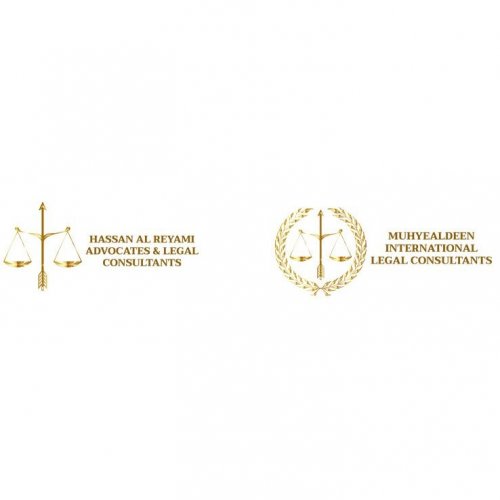Best Hiring & Firing Lawyers in Abu Dhabi
Share your needs with us, get contacted by law firms.
Free. Takes 2 min.
List of the best lawyers in Abu Dhabi, United Arab Emirates

The Black Robe For Legal Consultancy & Debit Collection
1 hour Free ConsultationAbout Hiring & Firing Law in Abu Dhabi, United Arab Emirates:
The hiring and firing law in Abu Dhabi, UAE is governed by the federal law of the UAE, specifically the Federal Law No. 8 of 1980 that regulates labor relations, also known as the UAE Labor Law. The labor law covers all aspects relating to employment including hiring, termination, work hours, annual leaves, and end of service benefits among others. The law is primarily designed to protect employee rights, but it also takes into consideration the interests of employers.
Why You May Need a Lawyer:
Seeking legal advice is recommended when dealing with complex employment matters. Common situations where a lawyer can be of significant help include wrongful termination claims, settlement negotiations for end of service benefits, disputes over non-compete agreements, allegations of workplace discrimination or harassment, and understanding employee rights upon termination. It is also important for employers to seek a lawyer's advice when drafting employment contracts and company policies to ensure compliance with local labor law.
Local Laws Overview:
The UAE Labor Law provides specific procedures for hiring and firing. Under the law, an employer is required to provide written contracts detailing the nature of the work, remuneration, and other terms of employment. On the matter of termination, either party may terminate a contract but under different conditions depending on whether the contract is limited or unlimited. Notice periods and end-of-service gratuity are key elements in these procedures. Employers also need to be cautious of unjust dismissal, as this could lead to potential compensation orders. The law also provides provisions against discriminatory practices in the workplace.
Frequently Asked Questions:
1. Can an employer terminate an employee without notice in Abu Dhabi?
For unlimited contracts, usually, a notice period of 30 days is required. However, under certain circumstances like misconduct, an employer may terminate an employee without notice.
2. What is the process of hiring foreigners in Abu Dhabi?
To hire a foreign individual, employers must first obtain a work permit for the individual from the Ministry of Human Resources and Emiratisation (MOHRE). They must also provide a residency visa for the individual.
3. What are the rules regarding annual leaves?
An employee who has been employed for at least six months is entitled to annual leave. The length of the leave depends on the duration of service.
4. What should a worker do in case of a labor rights violation?
They should initially raise the issue with the employer. If the dispute persists, it can be escalated to the MOHRE, and if necessary, to the local labor court.
5. Can an employer enforce a non-compete clause in Abu Dhabi?
Yes, however, the enforceability of non-compete agreements is subject to certain restrictions related to duration, geographic area, and the nature of the work.
Additional Resources:
The Ministry of Human Resources and Emiratisation (MOHRE) is the primary body that regulates labor relations. Their website provides valuable information on labor rights and obligations under UAE law. For legal advice, there are numerous law firms specializing in employment law available throughout Abu Dhabi.
Next Steps:
If you are faced with serious employment issues or simply need advice to understand your rights and obligations better, it would be beneficial to consult with a skilled legal professional. Be prepared to provide relevant documentation like contracts, company policies, and evidence related to your claim. Always remember that an early consultation can often prevent costly disputes and litigation down the line.
Lawzana helps you find the best lawyers and law firms in Abu Dhabi through a curated and pre-screened list of qualified legal professionals. Our platform offers rankings and detailed profiles of attorneys and law firms, allowing you to compare based on practice areas, including Hiring & Firing, experience, and client feedback.
Each profile includes a description of the firm's areas of practice, client reviews, team members and partners, year of establishment, spoken languages, office locations, contact information, social media presence, and any published articles or resources. Most firms on our platform speak English and are experienced in both local and international legal matters.
Get a quote from top-rated law firms in Abu Dhabi, United Arab Emirates — quickly, securely, and without unnecessary hassle.
Disclaimer:
The information provided on this page is for general informational purposes only and does not constitute legal advice. While we strive to ensure the accuracy and relevance of the content, legal information may change over time, and interpretations of the law can vary. You should always consult with a qualified legal professional for advice specific to your situation.
We disclaim all liability for actions taken or not taken based on the content of this page. If you believe any information is incorrect or outdated, please contact us, and we will review and update it where appropriate.
















